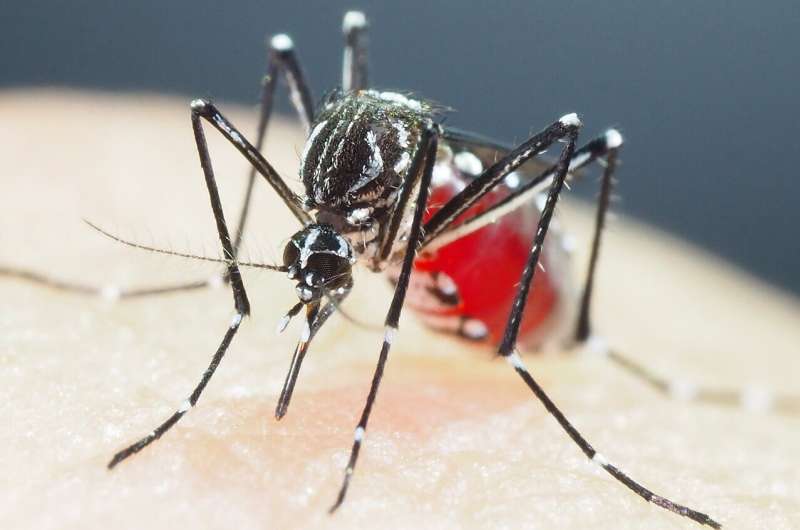December 22, 2022 report
Mosquitoes highly resistant to insecticides found in Vietnam and Cambodia

A team of researchers affiliated with multiple institutions in Japan, working with colleagues from Vietnam, Cambodia, Singapore, Taiwan, Indonesia and Ghana, has found evidence of mosquitoes that are highly resistant to common insecticides in both Vietnam and Cambodia.
Insects such as mosquitoes carry a host of infectious diseases, ranging from dengue and yellow fever to the Zika virus and malaria. So scientists have developed a host of chemicals aimed at killing or repelling mosquitoes, most of which are called pyrethroids and target the mosquito's central nervous system. In this new effort, the researchers have found evidence of mosquitoes in Vietnam and Cambodia evolving to become highly resistant to pyrethroids.
The work involved going into the field and collecting mosquitoes in Vietnam, Indonesia, Ghana and Taiwan. The researchers then sprayed each of the samples with permethrin, a pyrethroid that is commonly used in all of the areas where the samples were collected. They found that just the 20% of the mosquitoes collected from Vietnam died. Death rates from mosquitoes in the other samples were as expected.
The researchers then took a look at the genomes of the mosquitoes that had survived exposure to the insecticide and found a mutation in the L982W gene—a gene that has already been linked to resistance in mosquitoes. The team then collected more samples, this time from Singapore and Cambodia, and studied their genes, looking specifically at L982W. They found 10 unique strains with mutations similar to those seen in the Vietnamese mosquitoes—and almost all of them were in Cambodia.
The researchers estimated that up to 78% of the mosquitoes in the samples they collected from Cambodia or Vietnam were resistant to pyrethroid—and those with the pyrethroid mutation were found to have on average a 50- to 100-fold increase in resistance. They also looked for combinations of mutations that lead to resistance and found that those with a combination of L982W and other mutations could survive pyrethroid exposure levels of 500 to 1,000 times more than the amount that normally kills mosquitoes.
The researchers conclude that other countries should begin testing for resistance to determine the true magnitude of the problem.
The work is published in the journal Science Advances.
More information: Shinji Kasai et al, Discovery of super–insecticide-resistant dengue mosquitoes in Asia: Threats of concomitant knockdown resistance mutations, Science Advances (2022). DOI: 10.1126/sciadv.abq7345
Journal information: Science Advances
© 2022 Science X Network



















